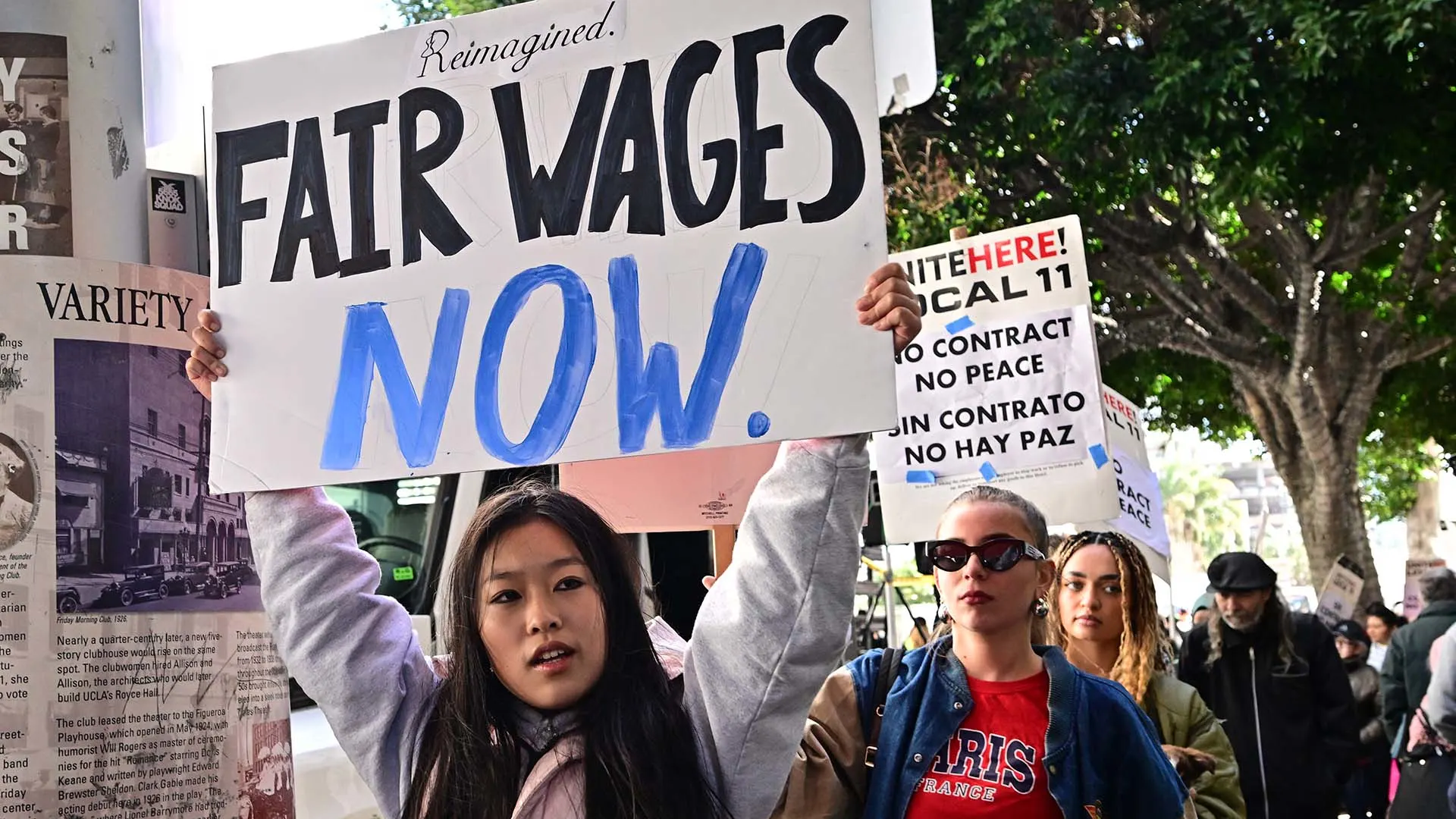Written By Lexx Thornton
Business owners who’ve spared a sympathetic thought for California fast food chains that have financed the state’s $20 minimum wage over the past year might want to turn that empathy to hotels in Los Angeles. Under a recently passed municipal ordinance, all larger hotels in the city must raise hourly wages by $2.50 each year until they reach the mandated $30 in 2028.
In recent weeks Los Angeles has mostly drawn attention to its large and energetic street protests against workplace sweeps by U.S. Immigration and Customs Enforcement (ICE) units, which are enforcing President Donald Trump’s mass deportation of undocumented people. Those clashes between demonstrators and law enforcement may look like tea parties compared to the hardening confrontation between unions backing L.A.’s $30 hotel minimum wage ordinance, and travel and tourism industry organizations vowing to overturn it. At stake in that tussle is the health of the city’s struggling hospitality industry.
The dispute is centered on a city council decision in May to increase the current $22.50 minimum hourly wage at hotels with over 60 rooms by $2.50 annually, starting next month, and lifting it to $30 in 2028. The ordinance has since been signed into law by Mayor Karen Bass and also covers most L.A. airport workers. In response, the American Hotel & Lodging Association (AHLA) trade group has gone into action to derail it.
To do so, the AHLA is rushing to gather the required 93,000 signatures by the end of June to get its initiative to block the $30 minimum wage on the state’s 2026 ballot. Should it succeed, the coalition of airline, tourism, and hospitality businesses would freeze the increase until voters can have their say next year.
In response, the Unite Here labor movement behind the new hotel minimum wage ordinance upped the ante. It launched a petition drive of its own for a 2026 ballot proposal making $30 an hour the legal minimum for all jobs in L.A. Both sides have hurled accusations of underhandedness and making misleading statements as the signature deadline nears, with union members claiming they’d even been beaten while out canvassing support.
None of that increasingly bitter jousting is brightening the outlook of the city’s hotel owners, who have seen a tough business atmosphere grow even darker in the past month.
As noted in a recent Wall Street Journal report on the clash, L.A. hotels have been slower bouncing back from pandemic disruptions than those in other cities. They still post 15 percent lower per-room revenues than they did in 2019, amid rapidly rising costs that have pushed rates up. That has led many budget-conscious visitors to Los Angeles to opt for cheaper options like Airbnb rentals.
To make things worse, L.A. has also been hit hard by plunging international travel to the U.S. this year. That’s a consequence of people abroad canceling trips in anger over Trump’s trade war, and the personal threats they fear his immigration policies may expose them to if they visit the country now.
Meanwhile, widely viewed news footage of protesters clashing with police over ICE raids has also made domestic tourists think twice about coming to the city.
The resulting tourism and travel slump, coinciding with the $30 minimum wage vote, comes at a terrible time for L.A. hotel owners. Many had hoped they’d already be seeing visits increase ahead of marquee sports events coming to town next year, including several FIFA World Cup matches, the NBA All-Star game, and the Super Bowl.
Those events had been expected to fuel an accelerating build-up to the anticipated travel boom during the Los Angeles-hosted 2028 Summer Olympics. Now many hotel owners wonder if that will materialize at all. With their costs rising, occupancy still down, demonstrators still active, and the $30 minimum wage looming, some L.A. hoteliers see nothing to look forward to.
“We would love to sell… (b)ut nobody will buy them” Jon Bortz, chief executive of the Pebblebrook Hotel Trust, told the Journal, warning the higher minimum wage threat is already leading many L.A. hoteliers to cut staffing and delay costly but necessary renovation work. “The quality of the experience is going to go down. And that’s going to hurt tourism, and it’s going to leave L.A. in sort of an embarrassing situation when it comes to the World Cup and the Olympics.”
Woebegone L.A. hotel owners still have the hope that the AHLA will succeed in collecting its 93,000 signatures before July to qualify its ballot measure and freeze the $30 hourly minimum wage for 18 months when it might be definitely beaten during polling.
But given Los Angeles’ history as a stronghold of progressive politics, hoping voters will back the initiative at the ballot box may become another source of hoteliers’ disappointments in November 2026.


